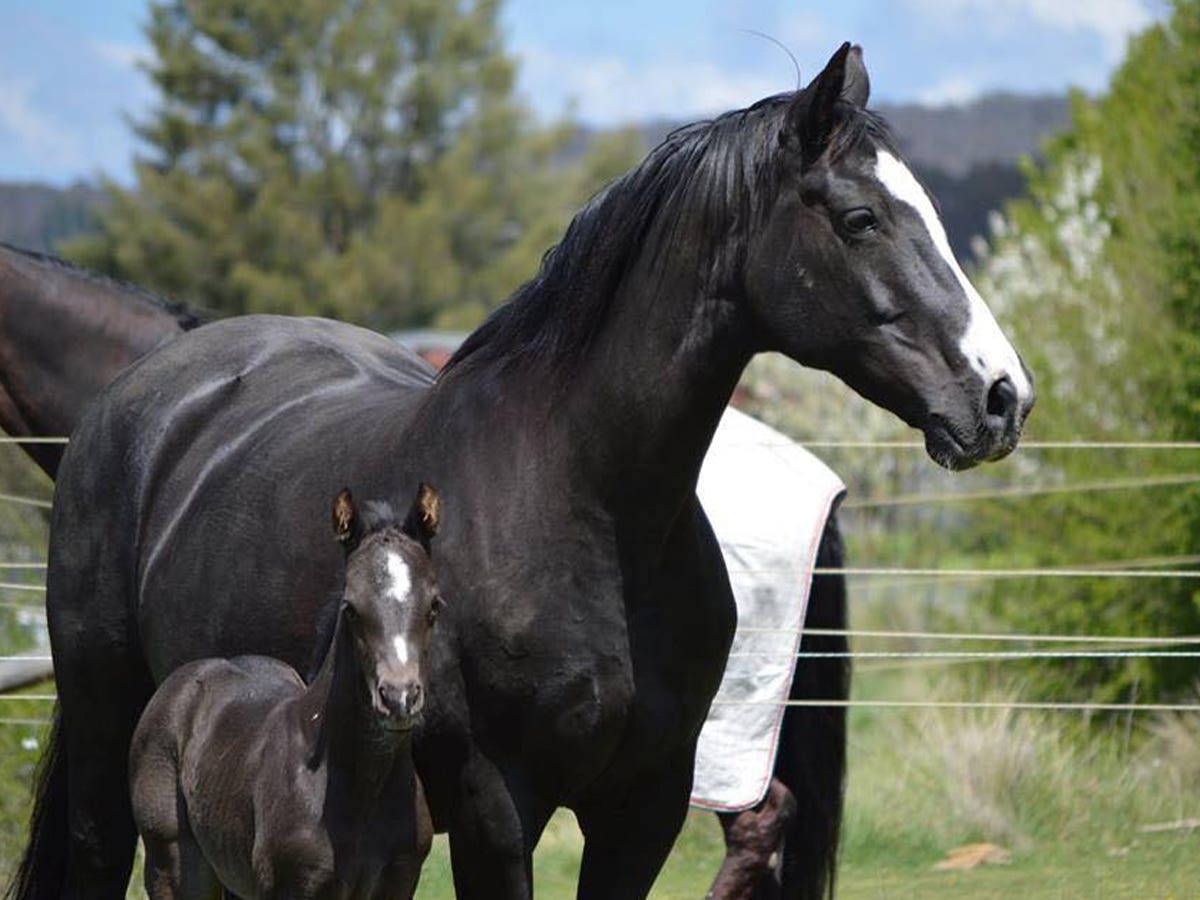

Over recent years, much more research has focused on the nutritional requirements and feeding management of the broodmare.
Inadequate nutrition can have a direct influence on the fertility, conception and foaling rate of mares. Poor nutrition is a major factor that can reduce reproductive efficiency, despite good breeding management and veterinary care of otherwise healthy mares. An adequate and well-balanced nutrient intake and feeding management program is paramount to fertility and breeding success. Of all the nutritional factors that can influence fertility and maintenance of pregnancy, the adequacy of energy and protein intake is critical to breeding success.
Horse breeders often over-feed pregnant mares and growing horses, in comparison to dry mares and lactating mares which are often underfed especially when maintained predominantly on grazing pasture. Under these conditions, inadequate nutrition can affect a mare’s subsequent fertility, conception rate, increase the risk of early embryonic abortion and the development of her foal during late pregnancy.
Feeding for Fertility
- A poorly fed or thin mare in below average condition will have a delayed onset of oestrus and irregular oestrus cycles, in contrast to a well-fed mare.
- A thin mare will come into season and cycle, but may fail to ovulate, conceive or maintain her pregnancy. Such a mare should have her feed intake increased, commencing 3 – 5 weeks before the breeding season, so that she is gaining weight when bred.
- An inadequate intake of protein, even with adequate energy can delay the onset of oestrus and decrease overall fertility, possibly due to failure to ovulate, although a mare may show her normal oestrus behaviour and cycle length.
- An inadequate intake of energy in a mare during the first 90 days of pregnancy, due to starvation, relocation stress or mare group competition for feed, for a period of 4 days, will greatly increase the risk of early embryonic abortion and loss of pregnancy even before a loss of body weight is evident.
- Unless a mare’s body weight is improved after foaling, she will have a higher risk of lower fertility and embryonic loss when she is bred during the peak of her lactation, if she is losing condition due to inadequate energy intake.
Maiden Mares
A steady rising plane of nutrition will help to improve fertility and conception rates for mares that are in light to medium condition. The gradual build-up of the energy intake in the ration should commence at least 4 – 6 weeks prior to mating. Heavier mares should be maintained at a constant body weight, without allowing them to become obese.
Formulating a Fertility Ration
Balanced nutrition is essential for all horses, especially for broodmares. Before breeding, it is important that the ration contains adequate levels roughage, energy and protein as well as all essential vitamins and trace-minerals, such as provided in Kohnke’s Own Cell-Vital. Throughout the pregnancy, a mare’s nutritional requirements will change, it is therefore important to have a well-researched and formulated diet suitable for each stage of pregnancy. Kohnke’s Own offer a FREE ration analysis service which is an asset to any breeding program as diets can be individually tailored at each stage of the mare’s breeding cycle.
For mares with fertility problems, supplementing with extra selenium has been proven to help fertility. Kohnke’s Own E-Se Supplets contains both vitamin E and selenium which help to support reproductive health in broodmares. Research has also found that supplementing with additional vitamin E in the 4 weeks prior to foaling helps to increase the concentration of immunoglobulins in mare colostrum, leading to optimum immunity in nursing foals.
By Kohnkes Own - Dr. John Kohnke BVSc RDA

